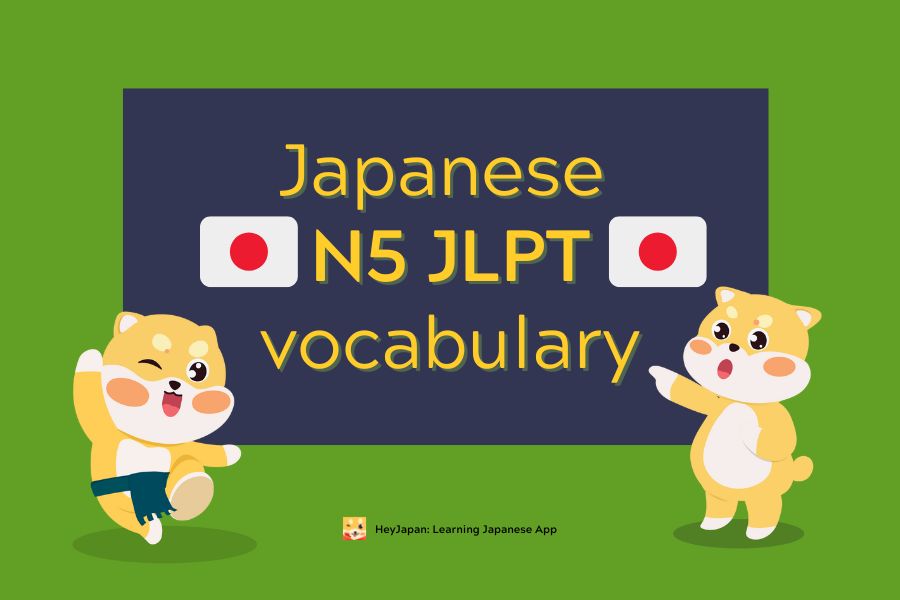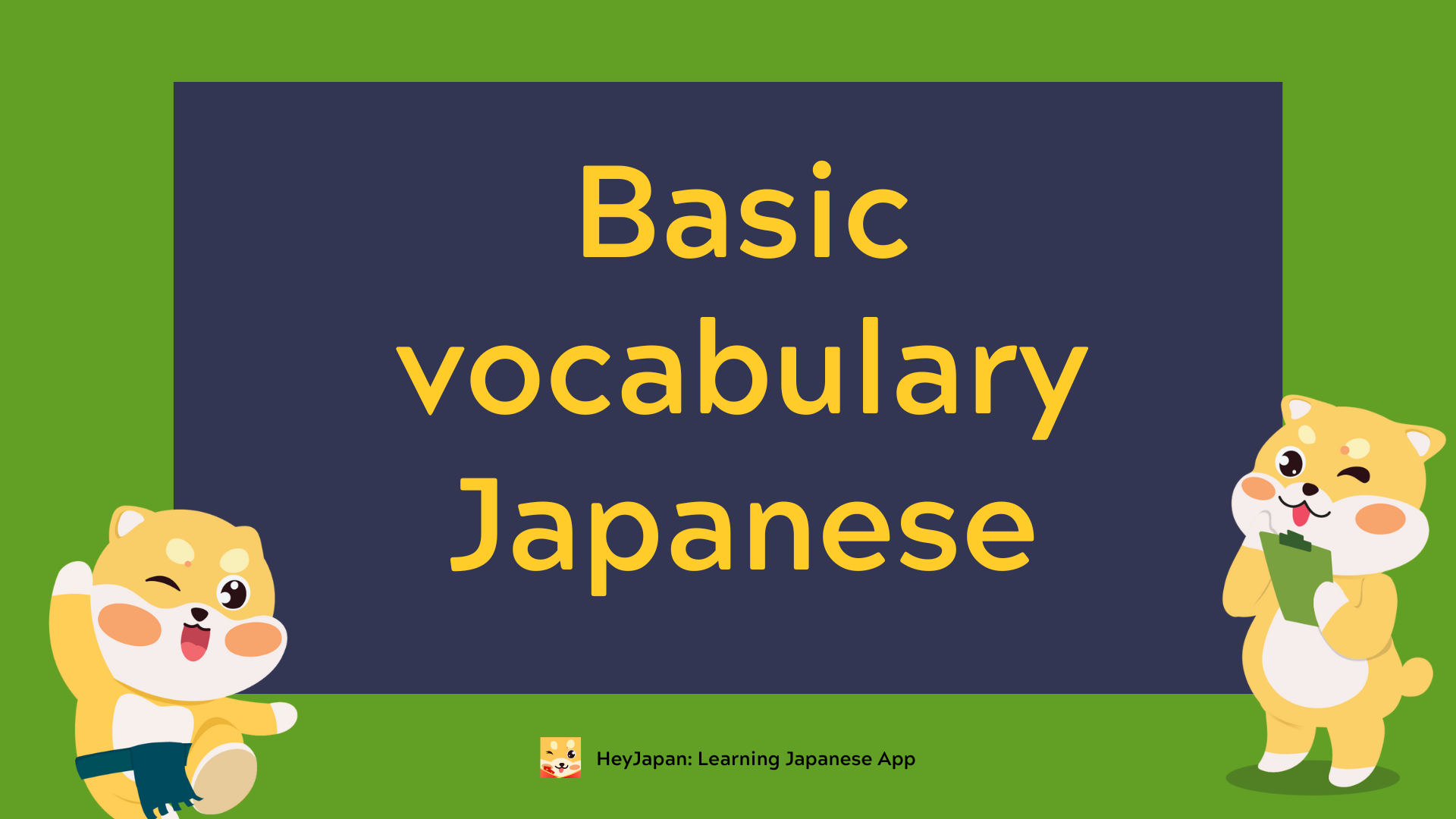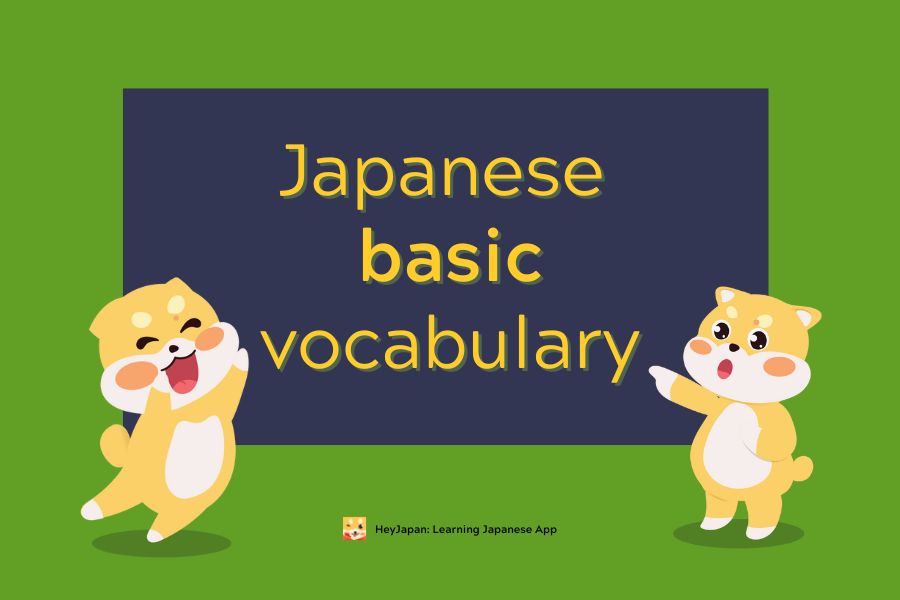- I. The Importance of Memorising Japanese Vocabulary
- II. Effective Methods to Memorise Japanese Vocabulary
- 1. Using Spaced Repetition (SRS)
- 2. Using Flashcards
- 3. Applying Mnemonics (Memory Aids)
- 4. Learning Vocabulary Through Context
- 5. Learning Vocabulary by Topic
- III. Tools to Support Vocabulary Retention
- 1. Vocabulary Apps
- 2. Using Audio and Video
- IV. Common Mistakes When Memorising Vocabulary and How to Avoid Them
- 1. Overloading Yourself with Too Many Words
- 2. Not Reviewing Regularly
- 3. Not Learning Vocabulary in Context
Learning Japanese can be both exciting and challenging, especially when it comes to memorising vocabulary. Whether you're preparing for the JLPT or just want to build your language skills, retaining Japanese words long-term requires more than just rote memorisation. In this guide, we’ll explore the best techniques to help you memorise Japanese vocabulary efficiently and make the learning process more enjoyable.
I. The Importance of Memorising Japanese Vocabulary
Vocabulary is the foundation of learning any language, and Japanese is no exception. Without a solid vocabulary, communication becomes difficult, and understanding Japanese culture through media like anime, manga, and literature becomes a challenge.
For learners aiming to pass the JLPT exams, mastering vocabulary is crucial for achieving high scores. In this article, we will guide you through effective methods for memorising Japanese words, so you can speak and understand Japanese with confidence.
II. Effective Methods to Memorise Japanese Vocabulary
1. Using Spaced Repetition (SRS)

What is Spaced Repetition? Spaced Repetition (SRS) is a learning technique that involves reviewing information at increasing intervals to improve long-term retention. It’s scientifically proven to help retain vocabulary and concepts in memory for longer periods.
How to Use Spaced Repetition
- Anki and Memrise are popular tools that implement SRS. These apps present flashcards to learners at optimized intervals based on how well the learner remembers each word.
- The key benefit of SRS is that it reduces the number of times you need to study, as it focuses on words that you tend to forget, helping reinforce your memory at the right time.
Why It Works
- By reviewing words just before you're likely to forget them, SRS ensures that you remember them in the long run, making it one of the most effective methods for memorising Japanese vocabulary.
2. Using Flashcards
What are Flashcards? Flashcards are a simple yet powerful tool for memorising new words. You write the Japanese word on one side and its meaning (and possibly an example sentence) on the other.

How to Use Flashcards
- You can create digital flashcards using apps like Anki or Quizlet, or go the traditional route by creating physical cards.
- For each flashcard, include a sentence or context to help associate the word with real-life scenarios. This aids in both vocabulary recall and usage.
Why Flashcards Work
- Flashcards use active recall, a process where you test your memory, which is known to strengthen neural connections and enhance retention.
- Combining flashcards with Spaced Repetition boosts efficiency and ensures you're not overwhelming your brain with too much information at once.
3. Applying Mnemonics (Memory Aids)
What is Mnemonics? Mnemonics involve creating memory aids such as visual stories or associations to help remember difficult words. This method is particularly effective for complex Kanji characters.

How to Use Mnemonics
- Create memorable associations for words. For example, if you're learning the word 橋 (hashi), which means "bridge," you could imagine a "hash" (as in food) being served on a bridge to create a vivid mental image.
- You can also use mnemonic stories to link unfamiliar vocabulary with a story, making it easier to remember by creating a narrative.
Why Mnemonics Work
- Mnemonics take advantage of the brain's natural ability to remember visual and narrative cues. By associating abstract words with familiar images or stories, you increase the chances of retaining them.
4. Learning Vocabulary Through Context
Why Context Matters Learning vocabulary in context is one of the most effective ways to retain new words. It helps you understand how words are used in real-life situations, making them easier to remember.
How to Learn Vocabulary Through Context
- Watch anime with subtitles: This helps you see how words are used in natural conversations.
- Read manga: Manga provides context for dialogue, so you can understand how to use certain words in different situations.
- Engage in conversations: Practicing with a native speaker or fellow learner allows you to use vocabulary in practical settings, which reinforces retention.
Why It Works
- Contextual learning makes vocabulary more meaningful, as you’re not just memorising isolated words but understanding their role and usage in everyday communication.
5. Learning Vocabulary by Topic
Why Learn by Topic? When you study vocabulary by topic, it helps you focus on related words and phrases that you'll use together. This method allows you to see connections between words, making them easier to remember.

How to Learn Vocabulary by Topic
- Start with essential topics like family, food, travel, or work, and learn words that fit those themes.
- For example, learning words related to greetings (こんにちは - "Hello"), directions (右 - "right"), or food (寿司 - "sushi") helps you group words together, making it easier to recall.
Why It Works
- Learning words in context and by topic helps you better understand how they’re used in real conversations, allowing for quicker and more efficient recall.
III. Tools to Support Vocabulary Retention
1. Vocabulary Apps
How They Help
- Apps like Anki and Memrise implement Spaced Repetition to make vocabulary learning more efficient. You can track your progress and focus on words you find more difficult.
- HeyJapan is another great app that combines vocabulary learning with fun games, quizzes, and challenges to make studying more engaging and effective.
2. Using Audio and Video
How Audio and Video Can Improve Vocabulary Learning
- Listening to Japanese audio and watching videos helps improve pronunciation, and by hearing the vocabulary used in conversations, you gain a deeper understanding of the context.
- Use Japanese podcasts, language learning YouTube channels, and even watch Japanese TV shows to expose yourself to different ways the language is spoken.
IV. Common Mistakes When Memorising Vocabulary and How to Avoid Them
1. Overloading Yourself with Too Many Words
- Trying to learn too many words at once can overwhelm your memory. Focus on mastering a few words per session and use Spaced Repetition to reinforce them.
2. Not Reviewing Regularly
- Vocabulary retention requires regular review. Make it a habit to review words daily to keep them fresh in your memory.
3. Not Learning Vocabulary in Context
Memorising isolated words can lead to gaps in understanding. Make sure to learn words in context, using them in sentences or conversations to solidify your memory.
Memorising Japanese vocabulary is a challenging but rewarding process. By applying techniques like Spaced Repetition, Flashcards, Mnemonics, Contextual Learning, and Topic-based Learning, you can enhance your ability to retain and recall Japanese words efficiently.
Remember, the key to success is consistency. Set aside time each day to study and review, and try incorporating new words into your conversations, anime-watching sessions, or manga-reading practices.
Start implementing these methods today and see your Japanese vocabulary grow quickly and effectively! 🚀









